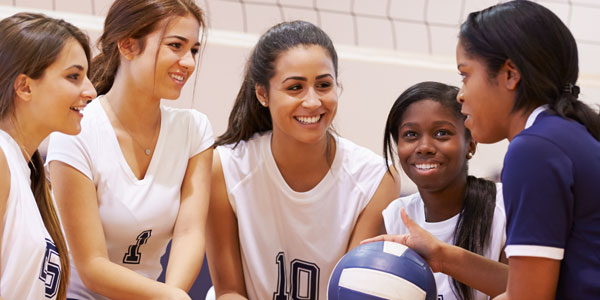
Why Did You Start Playing in the First Place
Do you have fun when you compete? Is sport enjoyable for you, or does it cause added stress in your life?
You would think athletes have a deep passion and love for competing, but that is not always the case…
Many athletes admit that competing is not fun. High expectations and pressure have taken the fun out of competing for many athletes today. Why do some athletes find competing no longer enjoyable?
Think back to when you first started participating in your sport? Practices were fun. Competitions were exciting. You couldn’t wait to get home from school so you could go to practice. You enjoyed being around your teammates. Probably, many of your teammates were your close friends.
Unfortunately, as some athletes grow older something changes. Practices feel like an obligation. You fear failure. Everything about your sport is more serious. You feel you are constantly being judged.
You view wins, personal bests, trophies, or accolades as the most important aspects of competition. When you focus on results, pressure and stress dominate your mind…
High expectations become unbearable.
- “If I don’t beat this person, I’m a failure.”
- “If I don’t perform at a high level, I won’t get a scholarship.”
- “If I don’t win, my parents will be angry.”
- “If I make any mistakes, my teammates will get upset with me.”
All the if’s lead to higher expectations, more pressure to perform, greater fear of failing, and less enjoyment of competing.
Let’s look at this issue through the lens of an Olympic athlete. Maddie Mastro is a 21-year-old snowboarder preparing for her second Olympics at the 2022 Beijing Winter Olympics.
At the 2018 PyeongChang Winter Olympics, Mastro fell short of her goal of medaling, finishing 12th in the halfpipe. Mastro explained how pressure and high expectations affected her performance:
MASTRO: “I was 17, turning 18 at the last Olympics, so I was young. I’ve had a lot of time to grow and learn… I’m going to go into the next Olympics not worrying what people are going to think, not worrying about the expectations or the pressures, whether they’re exterior or my own.”
For the 2022 Olympic Games, Mastro has shifted her mindset. Mastro is primarily focused on having fun and executing her game plan.
MASTRO: “I’m just going to prioritize having fun and landing tricks, which is something I wish I did more of in 2018, because I did let those expectations or pressures, kind of, eat away at me a little bit. And this time, I’m just going to go treat it like any other contest and have fun.”
When you focus too much on results and want it badly, you become anxious and underperform. You can avoid falling into that trap by choosing a different mindset.
Focusing on having fun and executing your game plan increases your chances of success. In addition, you will re-ignite the passion you experienced when you were a younger athlete. Shifting your mindset to a productive and positive perspective is a win-win proposition.
Tip for Focusing on the Fun of Competing
Every day before you train or compete, remind yourself the reasons you started competing in the first place. Write a list of the reasons you had fun as a young athlete.
Make these objectives–what you enjoyed about sports–a priority when you compete today.
Next, release yourself of the high expectations you have (or feel from others), such as to perform at your best all the time or be perfect. Expectations are the root of dissatisfaction when you don’t meet them.
Uncover your “shoulds” or “shouldn’ts.” I should not make mistakes, I should make coach happy, or I should always perform my best are examples of expectations you want to discard to have more fun.
Related Sports Psychology Articles
*Subscribe to The Sports Psychology Podcast on iTunes
*Subscribe to The Sports Psychology Podcast on Spotify
Download a free sports psychology report to improve your mental game!
Learn more about our one-on-one mental game coaching.

Concentration and the ability to focus under adversity is what championship athletes do best.
It only takes one distraction to enter your mind for you to lose a critical point, miss a putt, or lose a second off your lap time. You cannot afford to let distractions run wild in your mind and cause you to make errors at critical times in the game!
The Focused Athlete” audio and workbook program helps you or your athletes overcome distractions and sharpen concentration during competition. You learn how to get locked in during practice and competition so you can improve and perform better.
